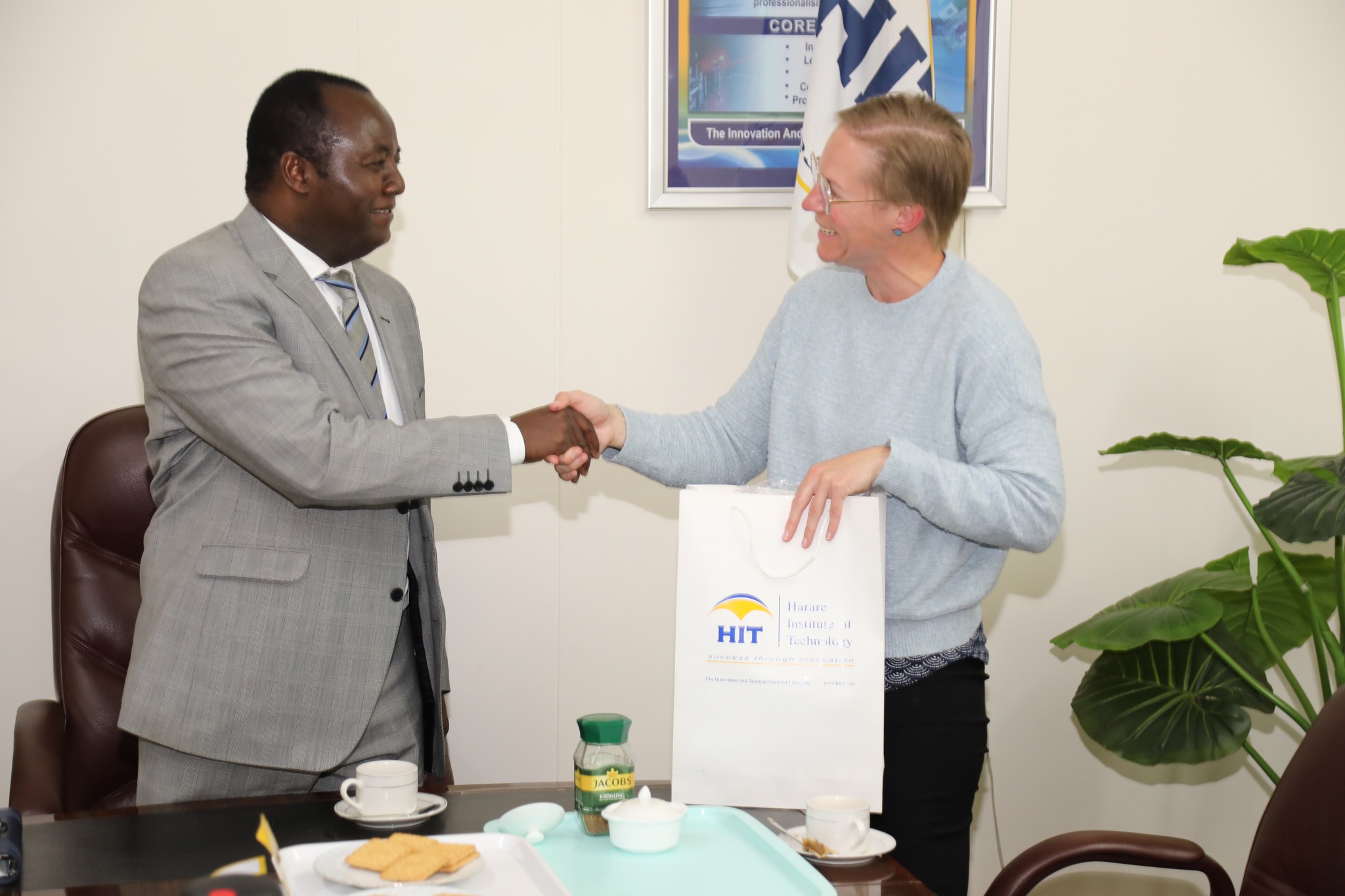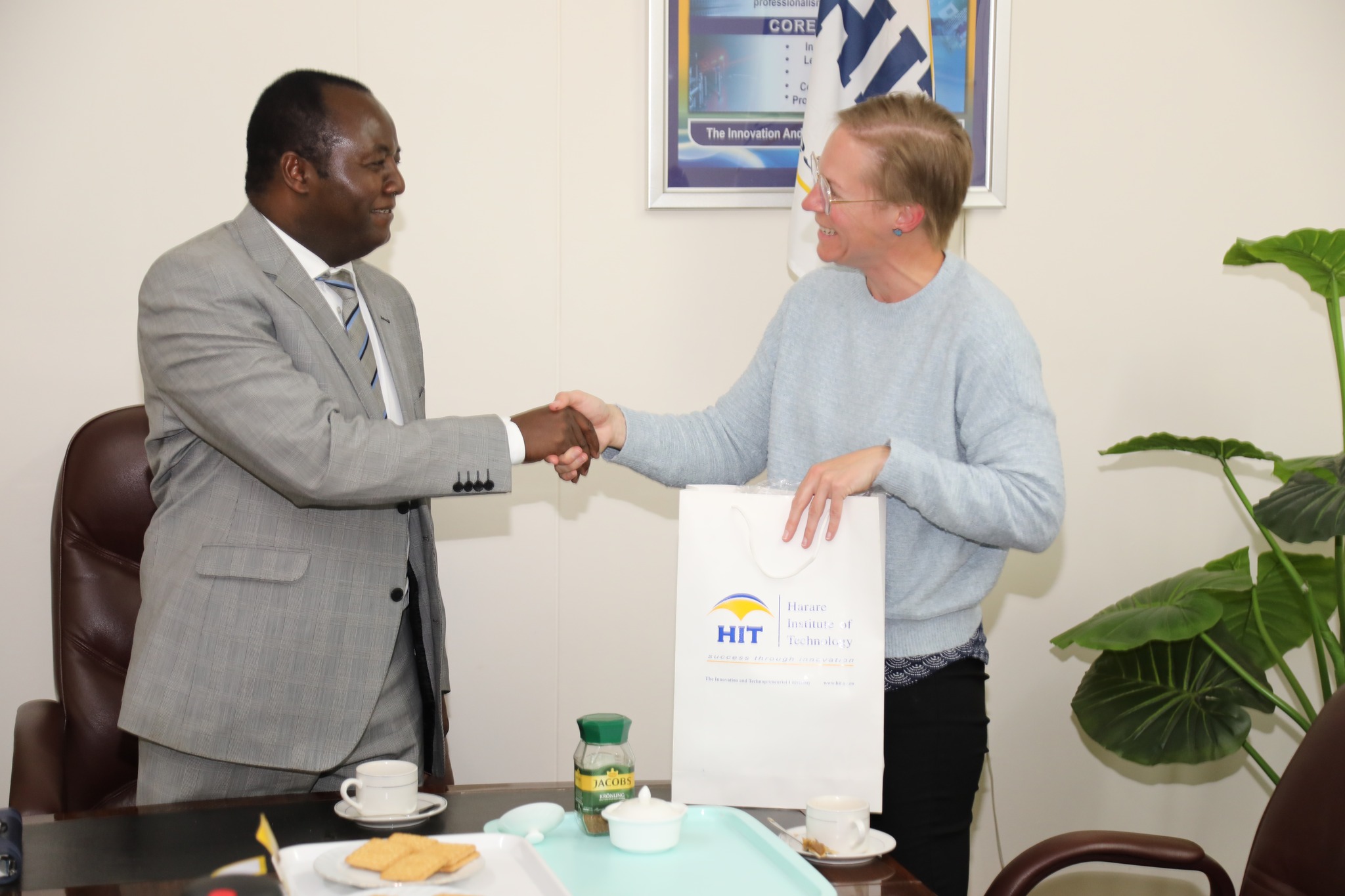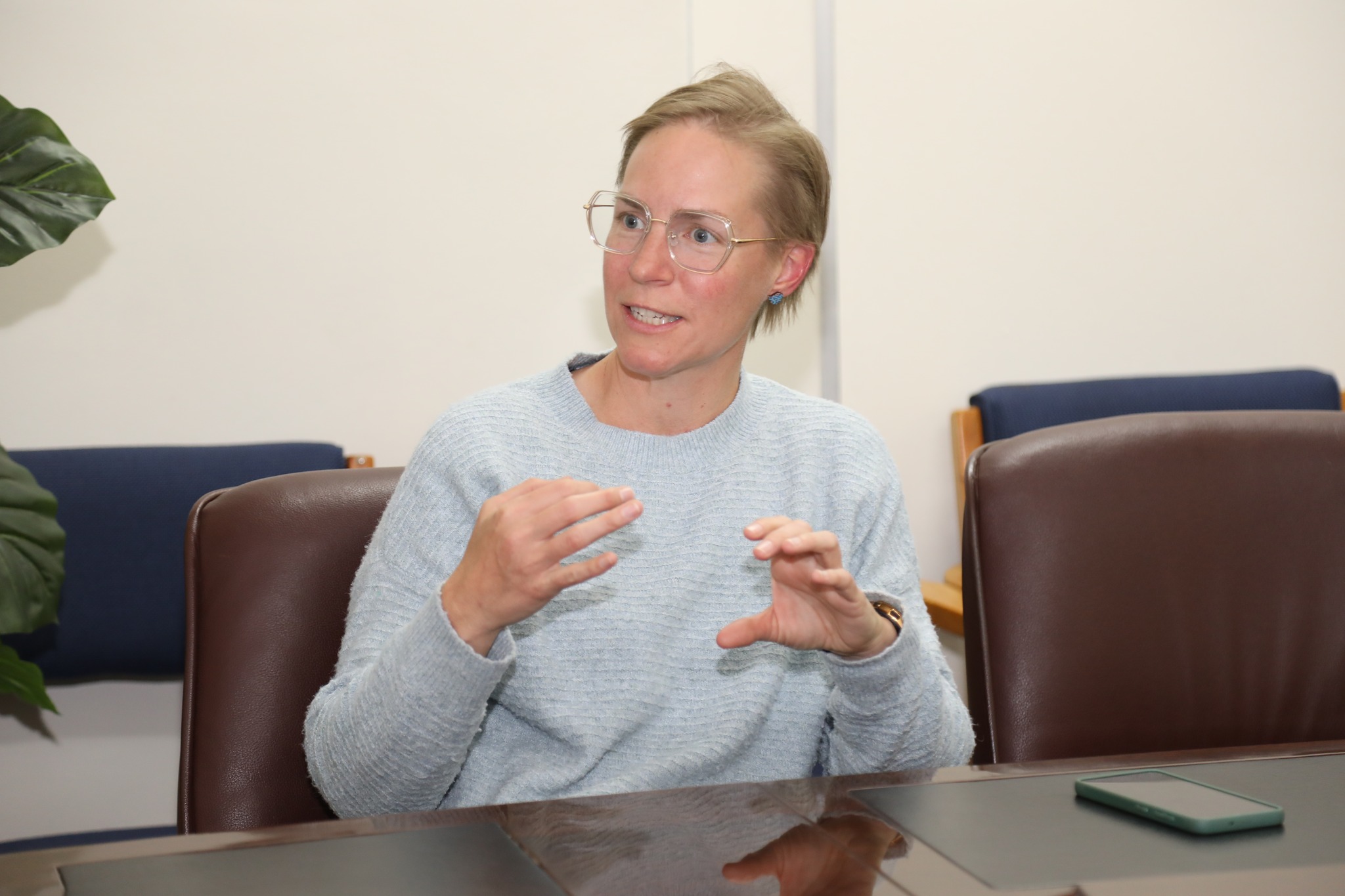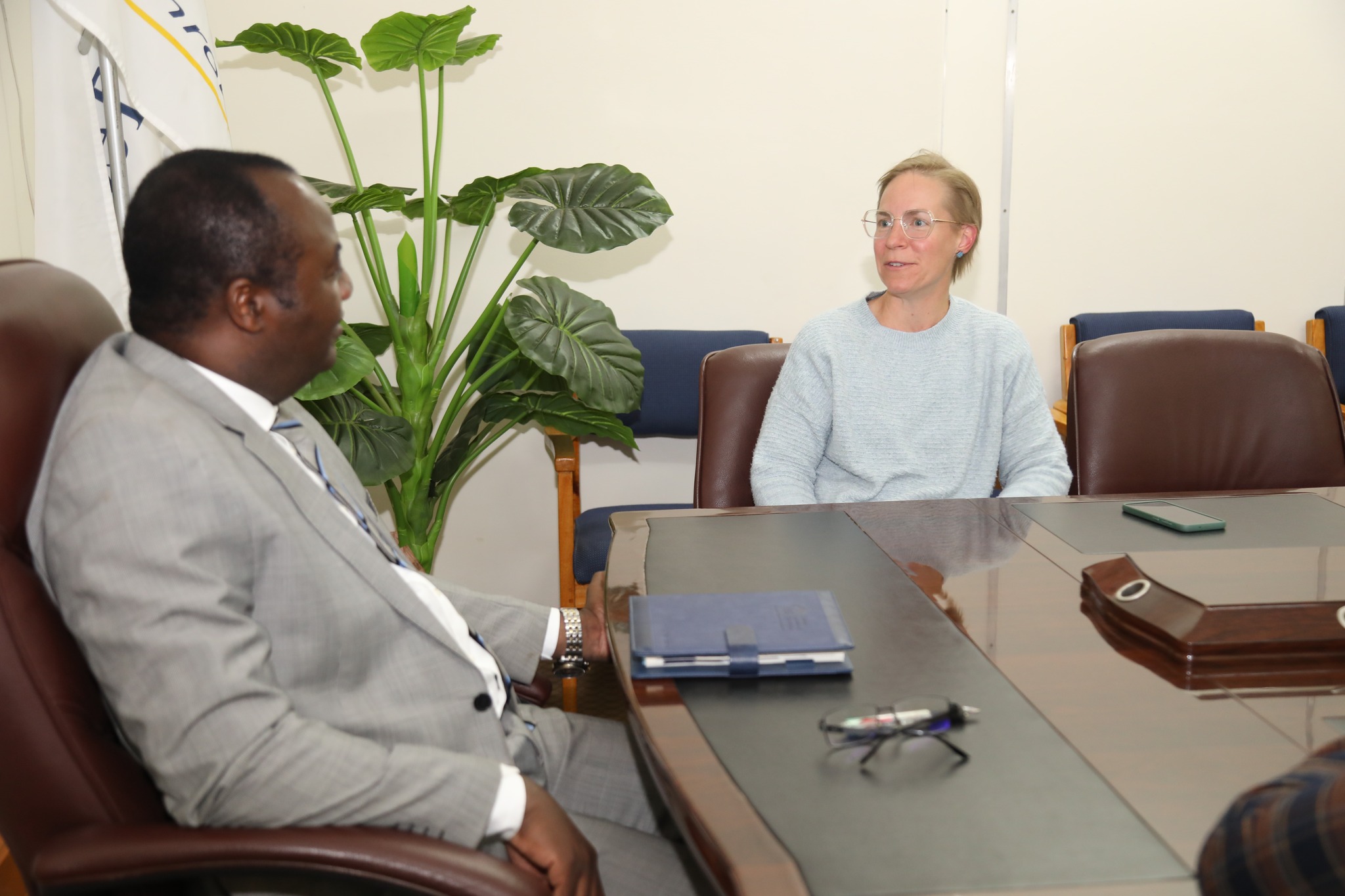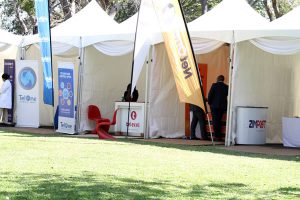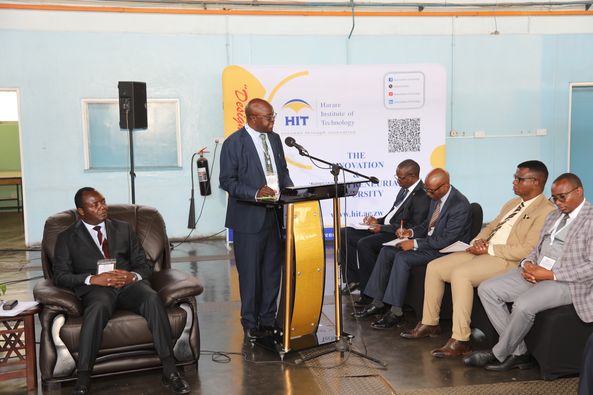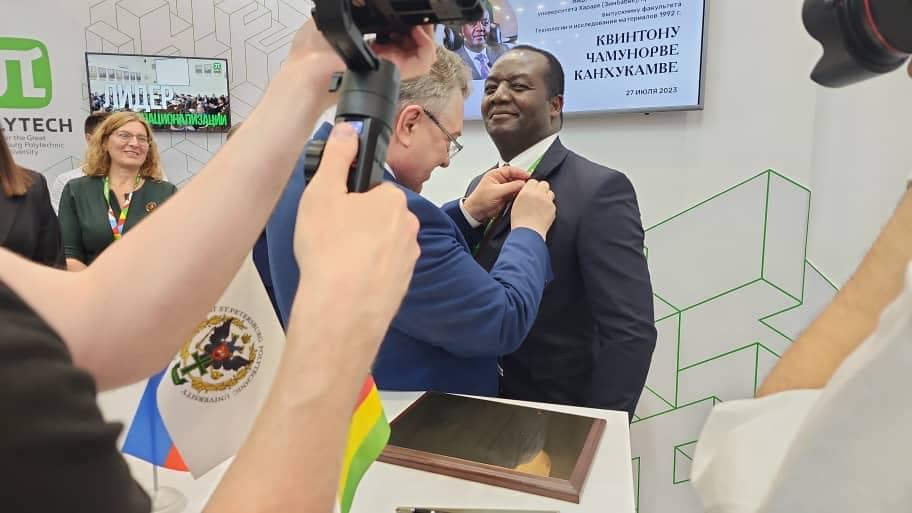In an exclusive interview with the Harare Institute of Technology (HIT) Communication, Advancement and International Relations (CAIR) Office, Dr. Kristin Kuter, US Fulbright Scholar, shared her research and teaching experiences at HIT.
Dr Kuter, who holds a PhD in mathematics, has been working at HIT since the start of the second semester of the 2023/24 academic year, teaching courses in statistical methods and applied statistics.
“My PhD is in mathematics. Specifically, I studied a variation of Brownian Motion, a random process used to model ‘white noise’ in several applications,” she said.
When asked about her research areas, Dr Kuter explained that her current focus is on mathematical and statistical modelling, with applications in data science, chemistry, and economics. “Given that HIT is a STEM-focused institution, my background and experience are foundational to all the degree programmes offered. However, given my experience of developing and directing a Master’s degree in data science, I joined the Computer Science Department in the School of Information Sciences and Technology to mentor both staff and students in fields most closely related to data science,” she said.
Dr Kuter’s plan to incorporate local perspectives and experiences into her teaching and research is evident in her approach to teaching her courses at HIT. She draws on the presentations by local researchers and students to highlight the types of problems and challenges being faced by Zimbabwean researchers and students. This approach allows her to provide relevant examples and case studies that resonate with her students.
“Before I began teaching my assigned courses here at HIT, I had the opportunity to evaluate proposals by aspiring PhD students in data science. During these proposals, I was able to see the types of problems and challenges that local researchers are interested in tackling. Drawing on those presentations, I was able to highlight many of the same themes in the examples I presented during my lectures at HIT this semester. Early in the semester, I also viewed presentations by students in HIT 400 within my School. This was particularly helpful as I prepared to take over the second half of the Applied Statistics course taken by these students in their first or second year. Knowing the types of projects students will be working on for HIT 400, I was able to highlight the data analysis techniques that will prove most beneficial to the students when they get to their fourth year. I was also able to help the students start thinking about their HIT 400 projects, especially as they prepare to go on attachment in their third year which will likely lend inspiration to those projects,” she said.
As a mentor, Dr Kuter aims to provide a solid foundation in data science skills for students in the School of Information Science and Technology. She hopes to prepare students for their Capstone Design projects and provide guidance to postgraduate students in the school. Her experience in developing and directing a master’s degree programmme in data science has given her a unique perspective on the needs of students in this field. “While at HIT I have been assigned to teach Statistical Methods for Finance for Part 1 students in the Financial Engineering Department, and Applied Statistics for Part 1 and 2 students in all the four departments of the School of Information Science and Technology.
“My primary goal in both of those courses was to provide a solid foundation in data science skills that the students can build on as they progress in their respective programmes. I also hope to provide mentorship to the postgraduate students in the School of Information Science and Technology. I have also served on the panel for presentations of Capstone Design Projects and I have discussed these projects with many final-year students as they work to complete their programmes,” said Dr Kuter.
Dr Kuter’s Fulbright experience has already contributed to the advancement of knowledge and innovation in Zimbabwe. She has been involved in Capstone Design projects at both undergraduate and postgraduate levels, leading to research publications and conference presentations.
In terms of cultural exchange and outreach, Dr Kuter has been actively engaging with the local community. She joined the Mountain Club of Zimbabwe, which introduced her to the beautiful countryside outside of Harare. She has also been taking Shona lessons twice a week, which has given her a deeper understanding of the culture and traditions of the Shona people. “During my time here in Zimbabwe, I have found Zimbabweans to be very welcoming, friendly, and patient with me. Zimbabweans pride themselves on being a peaceful people, and that has certainly been my experience. Most people are very excited to meet me and eager to learn as much as possible from me, as I am them! My plan to immerse myself in the community while here is to take advantage of every opportunity I am presented with and to travel throughout the country as much as possible,” Dr Kuter said.
Dr Kuter’s plans for post-Fulbright research and collaborations involve developing resources and facilitating the sharing of resources between Zimbabwean institutions and between institutions in Zimbabwe and the US. She hopes to engineer a culturally and economically relevant training programme for graduate students with relevant pathways and materials for undergraduate students.
When asked about her expectations for her Fulbright experience, Kuter expressed her hope to grow professionally and personally by mentoring and serving as a role model for women in STEM. She plans to balance the demands of teaching, research, and cultural engagement by managing her time efficiently. “I was pushed to pursue a PhD in maths by my abstract algebra Professor who singled me out in his class for my strength in writing proofs. As a result, I focus on mentoring and seek opportunities to translate my experience in serving women in STEM to serving other marginalised groups. The US has much room for improvement in supporting underserved populations, and this award will help me better understand how to support students across intersectional barriers to achieve professional success in STEM fields,” she said.
In conclusion, Dr Kuter’s Fulbright experience has been a valuable addition to the academic community at HIT. Her expertise in data science is contributing to the advancement of knowledge and innovation in Zimbabwe, and her cultural exchange initiatives are fostering greater understanding between local communities. As she looks to the future, Ms Kuter is eager to continue collaborating with local colleagues and institutions to develop sustainable programmes that benefit both Zimbabwean and US stakeholders.


